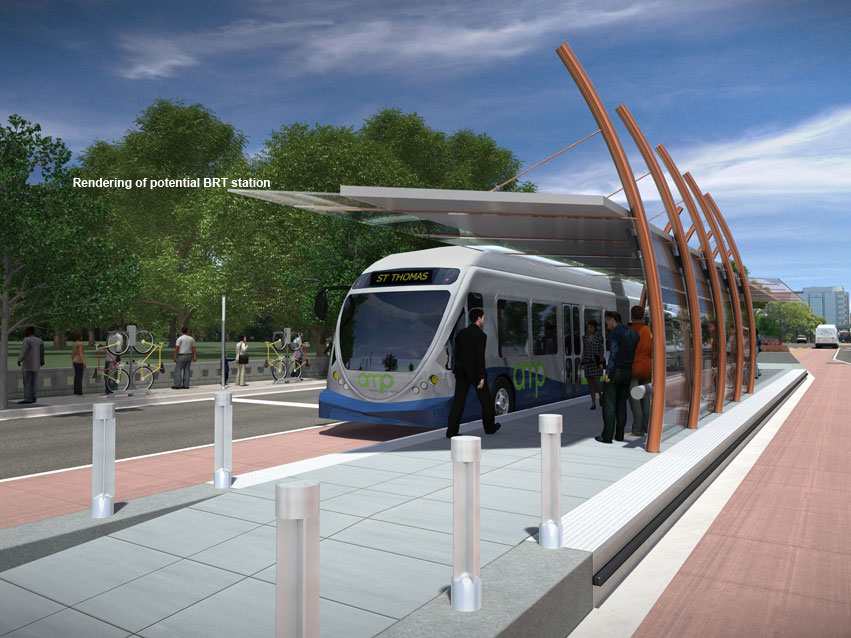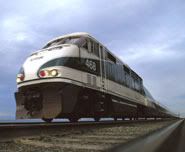With the debate over the Keystone XL Pipeline continuing, another important issue has arisen, transportation of crude oil by rail. Recent derailments and explosions have also brought into question safety considerations and the transport of Bakken crude, which is more dangerous to ship than other crude oil due to its flammability. This is not a new problem, in fact, it has been going on for decades and has been focused on the railroad tank car used, the DOT-111-A, as this McClathcy article reported in January:
Federal regulators might be weeks away from issuing new safety guidelines for tank cars carrying flammable liquids, after a series of frightening rail accidents over the past six months.
But the type of general-service tank car involved in recent incidents with crude oil trains in Quebec, Alabama and North Dakota – the DOT-111-A – has a poor safety record with hazardous cargoes that goes back decades, raising questions about why it took so long for the railroad industry and its federal regulators to address a problem they knew how to fix.
Other, more specialized types of tank cars received safety upgrades in the 1980s, and the industry’s own research shows they were effective at reducing the severity of accidents.
Tank car manufacturers have built new DOT-111A cars to a higher standard since 2011, but the improvements haven’t caught up to tens of thousands of older cars.
To be sure, improper railroad operations or defective track cause many accidents involving tank cars. But the National Transportation Safety Board, which makes recommendations but has no regulatory authority, has cited the DOT-111A’s deficiencies many times over the years for making accidents worse than they could have been.
In a segment on her show just last week, MSNBC’s Rachel Maddow illustrated the safety shortcomings of those rail tank cars used to transport this volatile crude oil, pointing to accidents, explosions, and toothless warnings going back over decades.
In April, the National Transportation and Safety Board (NTSB) has called on regulators to tighten standards and in early May, the Transportation Department issued a safety advisory pleading with companies that transport crude oil by train to discontinue old railcars
The advisory is non-binding, meaning it does not require companies to follow it, as an emergency order would. Yet it does apply to approximately 20,000 old tanker cars that companies rely on to carry Bakken crude from oil fields in North Dakota throughout the continent. The Transportation Department (DOT) recommended that only the sturdiest cars available are put to use, and that cars that cannot be destroyed should be updated.
Wednesday’s advisory came on the same day that the Transportation Department issued an emergency order forcing companies to provide communities alongside the rail routes with more information about the problems that are created when a spill or explosion takes place. [..]
The DOT itself admitted crude shipments present “an imminent hazard” in an emergency order forcing companies to be more transparent with the areas they go through. Trains carrying oil generally include at least 100 cars. The emergency order requires all carloads with more than one million gallons of Bakken crude, equivalent to approximately 35 cars, to give local lawmakers notice that a train will be making its way through. [..]
Companies shipping oil by rail have never been forced to notify communities regarding hazardous material on board until this week.
An estimated 715,000 barrels of Bakken crude oil are shipped by rail every day.
It appears the oil industry is not going to lie down and take it.
American Petroleum Institute said it’s important to “separate fact from fiction” when it comes to shipping crude oil from North Dakota by rail.
The North Dakota Petroleum Council published a study Tuesday that shows crude oil taken from the Bakken reserve area in the state is similar to other grades of oil from North America. It does not, as the U.S. Department of Transportation suggests, pose a greater risk when transported by rail, the council said.
Rachel Maddow exposed the bias of that report
It is past time that the Department of Transportation stopped issuing toothless warnings and cracked down with inspections and heavy fines.

 In a move to squash the freedom and local political autonomy of Nashville residents, the Koch Brothers-finded Americans For Prosperity turn out to be supporting a proposed State of Tennessee law outlawing Bus Rapid Transit systems that have dedicated lanes. From
In a move to squash the freedom and local political autonomy of Nashville residents, the Koch Brothers-finded Americans For Prosperity turn out to be supporting a proposed State of Tennessee law outlawing Bus Rapid Transit systems that have dedicated lanes. From  Over the balance of this year, you are likely to hear more and more about our broken Highway Funding system. For instance, William Moore, of the consultancy group Vianovo and member of the Transportation Transformation Group,
Over the balance of this year, you are likely to hear more and more about our broken Highway Funding system. For instance, William Moore, of the consultancy group Vianovo and member of the Transportation Transformation Group,  Earlier this month, the philly.com from the Philadelphia Inquirer carried a story,
Earlier this month, the philly.com from the Philadelphia Inquirer carried a story,  Today, the focus is on one lovely rhetorical ploy used by anti-rail advocates to try to put one over on people with limited experience with trains. This relies on the false framing that “trains is trains”, and uses something that is true about a particular kind of local rail transport to mislead people about 110mph Emerging High Speed Rail in particular.
Today, the focus is on one lovely rhetorical ploy used by anti-rail advocates to try to put one over on people with limited experience with trains. This relies on the false framing that “trains is trains”, and uses something that is true about a particular kind of local rail transport to mislead people about 110mph Emerging High Speed Rail in particular. This is more or less the three year anniversary of the first Sunday Train ~ a bit less than more, since this is the 12th of August 2012 and I think that the first Sunday Train was 16th of August, 2009. It emerged from a variety of blogging I had been doing over the previous couple of years, with a notion that if I set down a target of blogging on Sunday, it would make it easier for people to track the Sunday Train down. It was originally posted at my midnight-populist blogspot,
This is more or less the three year anniversary of the first Sunday Train ~ a bit less than more, since this is the 12th of August 2012 and I think that the first Sunday Train was 16th of August, 2009. It emerged from a variety of blogging I had been doing over the previous couple of years, with a notion that if I set down a target of blogging on Sunday, it would make it easier for people to track the Sunday Train down. It was originally posted at my midnight-populist blogspot,  Back in April, Hope Yen was on the Huffington Post with
Back in April, Hope Yen was on the Huffington Post with
Recent Comments